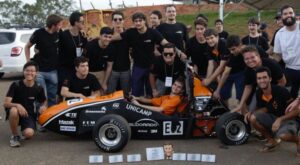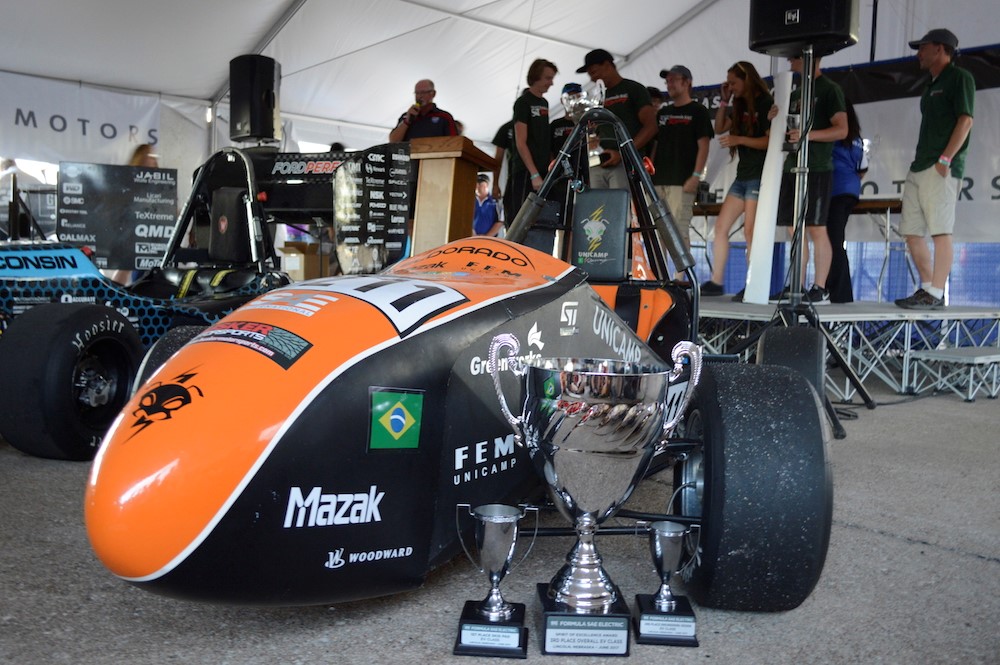Students from the University of Campinas (UNICAMP) in Brazil came to Lincoln, Nebraska with their electric car to compete in the SAE International Formula program. The design competition challenges them to develop and build a single-seat racecar with the best overall package of design, construction, performance, and cost.

Before arriving at the event, student teams design, build and test their prototypes. The rules for the cars encourage onsite event operations and clever problem-solving.
ST’s sponsorship included supplying them with a wide range of requested ST regulators, transceivers, sensors, power discretes, high-performance STM32F3-series MCUs and STM8L and STM32 Discovery boards. The UNICAMP team arrived confident and the team was sure their car was top-notch, as the car had won the Brazil area SAE Formula Series in 2016. The ST sponsorship is another among alternative-fuel vehicles.
For the USA competition, third-party judges inspect the vehicles to ensure they comply with the competition rules. Then a driver from the team puts the electric car through its paces in multiple judged performance tests on the track.
The Rules
The judges, from leading companies like SpaceX, Tesla, and Harley Davidson, first judged the cars for their potential as production vehicles. In Lincoln, the judges examined and rated the cars on cost, presentation, and design. Then they evaluated the cars on such performance features as acceleration, efficiency, and braking.

The UNICAMP car performed well, finishing 3rd overall, among the 21 vehicles competing. Strong scores in design and in the performance measures drove the car’s success. If not for a problem during the endurance test, UNICAMP could have finished at the top. The car’s scores in the other categories were world class.
Beyond using ST technology in their car, the students are also taking a page from ST’s management approach; aiming for continuous improvement in the upgraded car they are now developing for the 2017 Brazilian competition. That car is adopting ST battery-management chips, aiming to improve on already-strong power efficiency in the vehicle’s battery management system.
The students get valuable experience in competing in challenges like this one. ST Brazil gets a charge out of the student’s success. No doubt the ST Brazil team will continue to help the next generation of engineers and technologists.
